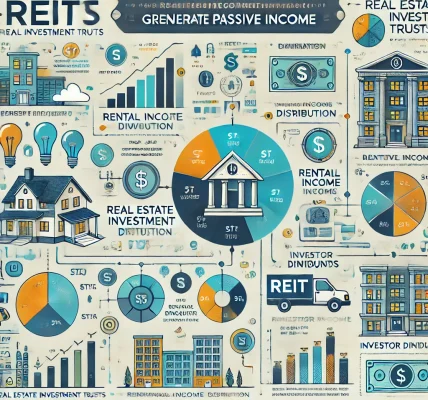Introduction
Inflation is an unavoidable economic phenomenon that affects all sectors of the economy, including real estate. For investors, understanding the impact of inflation on real estate is crucial for making informed financial decisions. Real estate has historically been considered a hedge against inflation, but how does it actually work? This guide will explore the role of inflation in real estate investment, its advantages, risks, and strategies to safeguard your investments.
Understanding Inflation and Its Impact on Real Estate
What is Inflation?
Inflation refers to the rate at which the general price level of goods and services rises over time, leading to a decrease in purchasing power. Measured by the Consumer Price Index (CPI) or the Producer Price Index (PPI), inflation erodes the value of money over time, making it more expensive to buy the same goods and services.
How Inflation Affects Real Estate
Real estate investment is significantly influenced by inflation, often in the following ways:
- Increased Property Prices – Inflation generally leads to an increase in the cost of raw materials and labor, which raises construction costs. This increase is then passed on to homebuyers and investors, causing property values to appreciate over time.
- Higher Rental Income – As inflation drives up prices, landlords can adjust rental rates to keep up with the cost of living. This makes real estate a strong hedge against inflation.
- Interest Rate Fluctuations – Central banks often raise interest rates to combat inflation, which makes borrowing more expensive. Higher mortgage rates can reduce home affordability but may also decrease real estate market competition.
- Asset Value Preservation – Unlike cash, which loses value due to inflation, real estate tends to appreciate, helping investors preserve their wealth.
Benefits of Investing in Real Estate During Inflation
1. Hedge Against Inflation
Historically, real estate values and rental income tend to rise with inflation. This makes property investments one of the most reliable ways to protect capital from the eroding effects of inflation.
2. Passive Income Growth
With inflation, rental income increases over time. If you own rental properties, your cash flow improves as you can adjust lease agreements to reflect the higher cost of living.
3. Leverage on Fixed-Rate Mortgages
If you finance a property with a fixed-rate mortgage, your monthly payments remain the same while rental income and property values increase. This allows you to pay off your mortgage with devalued currency, effectively reducing your real cost of borrowing.
4. Appreciation of Property Value
Inflation-driven demand for real estate often leads to property appreciation, benefiting investors who hold onto properties for the long term.
Risks of Investing in Real Estate During Inflation
1. Higher Interest Rates
To control inflation, central banks often raise interest rates, making borrowing more expensive. This can reduce property affordability and lower demand in the housing market.
2. Increased Maintenance and Operating Costs
Inflation affects not just home prices but also maintenance costs, property taxes, and utility bills. Investors must factor in these rising expenses when calculating potential returns.
3. Affordability Challenges for Buyers and Renters
Higher property prices and rental rates can limit the pool of potential buyers and tenants, leading to longer vacancies and slower property sales.
Strategies to Safeguard Your Real Estate Investments During Inflation
1. Invest in Income-Producing Properties
Opt for rental properties in high-demand locations to ensure a steady cash flow that keeps pace with inflation. Multifamily homes, commercial spaces, and short-term rentals are excellent choices.
2. Lock in Fixed-Rate Mortgages
A fixed-rate mortgage shields you from rising interest rates, allowing you to maintain predictable monthly payments while benefiting from increasing property values.
3. Diversify Your Real Estate Portfolio
Investing in different types of real estate (residential, commercial, industrial) across various locations reduces risk and maximizes growth potential during inflationary periods.
4. Increase Rent Strategically
To keep up with inflation, gradually increase rental rates while ensuring compliance with local rent control regulations to avoid legal issues.
5. Consider Real Estate Investment Trusts (REITs)
If direct property ownership is not feasible, REITs offer an inflation-resistant investment option. These trusts generate income from rent and property appreciation without requiring direct property management.
6. Refinance When Rates Are Favorable
If interest rates drop in the future, refinancing your mortgage can help reduce costs and improve cash flow.
7. Leverage Tax Benefits
Take advantage of tax incentives like depreciation deductions, mortgage interest deductions, and 1031 exchanges to optimize your returns and offset inflationary pressures.
Conclusion
Inflation plays a crucial role in shaping real estate investments. While it presents challenges such as higher interest rates and maintenance costs, it also offers advantages like asset appreciation and increasing rental income. By implementing smart investment strategies—such as locking in fixed-rate mortgages, diversifying your portfolio, and leveraging tax benefits—you can maximize your returns and protect your wealth against inflation.
Whether you’re a seasoned investor or a beginner, understanding the relationship between inflation and real estate will help you make informed, profitable investment decisions that stand the test of time.




